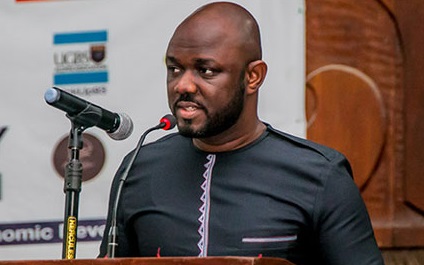Executive director of Africa Centre for Energy Policy (ACEP), Benjamin Boakye, has criticized the parliament’s mines and energy committee’s support for Genser Ghana Limited in its deal with GNPC.
According to him, he is shocked by the committee’s report due to its varying disposition on the real matter concerning the deal. He revealed that per the report, it was evident that the committee’s job was just to “whitewash” the agreement and change testimonies to align to a certain narrative it was pushing for in the report.
Mr Boakye indicated that based on testimonies from GNPC which was in a power point presentation, GNPC posited that the discount it gave Genser was approved by the ministry for energy as an industrial tariff. However, he stated that Genser’s testimony on the deal contradicted GNPC’s, as it claimed it wasn’t an industrial tariff but the market price that was discounted for the investment that GNPC was going to make.
Furthermore, he noted that due to the contradicting statements, the committee was forced to reconcile Genser’s testimony with that of GNPC’s, and that, he described as quite “disingenuous”.
below is a full statement:
“The committee also had the opportunity to speak to the minister and the ministry of energy on policy matters, whether the ministry approved the transaction or knew about it. The minister appears before them and says they didn’t know about it and were not part of the transaction. Meanwhile, they had evidence and letters from the ministry sanctioning and approving the transaction.
“So, this lie was also repeated in the report of the committee when they had letters from the ministry, showing that in fact, it was the ministry that told them to even extend the pipeline to Kumasi… So, the committee essentially, sought to support the Genser transaction by hook or crook and that’s what they have done. No interest in looking at what Ghanaians are going to lose as a result. Today, there’s tariff increases, and these tariff increases are going to go up to be able to accommodate this kind of uselessness that we are seeing in some of these transactions.”
Benjamin Boakyenone
Expounding on the content of the deal, Mr Boakye recounted that in September last year, ACEP along with other stakeholders chanced on a contract that has been operational between GNPC and Genser Ghana Limited for the latter to extend a pipeline to Kumasi and also be able to allow GNPC use its infrastructure over that period.
He explained that for that period of sixteen years, GNPC was going to pay Genser about $1.5 billion.
“So, the question that came to us is that if GNPC signs such an agreement for what capacity reservation, what is it in reality getting in return for that? We did the numbers and saw that that capacity reservation that GNPC is talking about is just a ruse to cover the whole transaction and how shady it is. Because there isn’t enough gas for the capacity that GNPC says its reserving in Genser pipeline… Where in that corridor is GNPC going to use that gas in the next 10 to 15 years to warrant they going into such an agreement?”
Benjamin Boakyenone
Subsidy payment to Genser for pipeline extension
Moreover, Mr Boakye noted that the only thing evident from the deal is the relocation of the Ameri power plant which stakeholders had earlier criticized. He expressed that even if the plant was relocated, it wouldn’t cost as much as it’s being put out there.
“So, is it just for the Ameri power plant that GNPC is committing in real time, and in fact, they have already started paying since 2020 but have not even used a molecule of gas. So, all that subsidy that they’ve granted to Genser, over those three years, has been of zero benefit to the Corporation. So, we criticized it and said that this needed the attention of government for that contract to be reviewed and also help save Ghana some money…”
Benjamin Boakyenone
Commenting on whether subsidy payment has been made for the three years duration since the deal was signed, the ACEP executive director conceded that government has been paying prior to the extension of the pipeline to Kumasi, which has been of no benefit to the country and GNPC.
“So, that bill goes back to the Central Bank and government pays with our taxes that should go into development, and Genser has been enjoying the subsidy for that period. Now, they are even saying they want to decouple the whole infrastructure from gas supply because they are saying GNPC is struggling to pay them the money…”










Discussion about this post